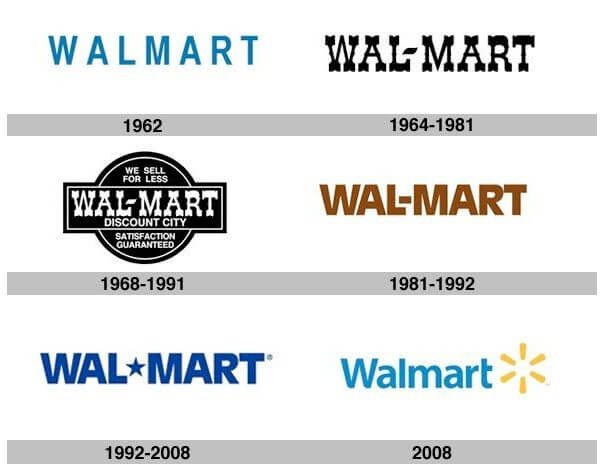The Global Retail Giant: Walmart's Commitment to Value and Convenience.


Walmart's extensive network of stores, which includes Walmart Supercenters, Walmart Neighborhood Markets, and Sam's Club warehouse clubs, provides customers with convenient access to a wide range of products and services. The company's omnichannel approach integrates its physical stores with e-commerce platforms, allowing customers to shop seamlessly online, in-store, or through mobile devices. This multichannel strategy enables Walmart to meet the evolving needs and preferences of today's shoppers while providing a flexible and convenient shopping experience. In recent years, Walmart has made significant investments in digital innovation and technology to enhance its e-commerce capabilities and compete effectively in the rapidly evolving retail landscape. The acquisition of online retailers such as Jet.com and Flipkart has bolstered Walmart's e-commerce presence and expanded its reach to new markets and customer segments. Additionally, Walmart's investments in artificial intelligence (AI), machine learning, and data analytics have enabled the company to personalize the shopping experience, optimize inventory management, and improve operational efficiency across its supply chain.
In recent years, Walmart has made significant investments in digital innovation and technology to enhance its e-commerce capabilities and compete effectively in the rapidly evolving retail landscape. The acquisition of online retailers such as Jet.com and Flipkart has bolstered Walmart's e-commerce presence and expanded its reach to new markets and customer segments. Additionally, Walmart's investments in artificial intelligence (AI), machine learning, and data analytics have enabled the company to personalize the shopping experience, optimize inventory management, and improve operational efficiency across its supply chain.
Walmart's commitment to sustainability and corporate responsibility is evident in its efforts to reduce waste, lower greenhouse gas emissions, and promote environmental stewardship throughout its operations. The company has set ambitious goals to achieve zero waste in its operations and supply chain while sourcing renewable energy and promoting sustainable sourcing practices. Through initiatives such as Project Gigaton, Walmart works collaboratively with suppliers to reduce emissions and drive positive environmental impact across its global supply chain. Beyond its core retail operations, Walmart is actively involved in community engagement, philanthropy, and social impact initiatives. The Walmart Foundation, established in 1979, supports programs and organizations focused on hunger relief, disaster response, education, and workforce development, making a meaningful difference in the communities where Walmart operates. Additionally, Walmart's commitment to diversity, equity, and inclusion is reflected in its efforts to promote a diverse workforce, support minority-owned businesses, and foster an inclusive corporate culture.
Beyond its core retail operations, Walmart is actively involved in community engagement, philanthropy, and social impact initiatives. The Walmart Foundation, established in 1979, supports programs and organizations focused on hunger relief, disaster response, education, and workforce development, making a meaningful difference in the communities where Walmart operates. Additionally, Walmart's commitment to diversity, equity, and inclusion is reflected in its efforts to promote a diverse workforce, support minority-owned businesses, and foster an inclusive corporate culture.
Looking ahead, Walmart remains focused on driving innovation, sustainability, and social responsibility while continuing to deliver value and convenience to customers around the world. Whether through investments in technology, expansion into new markets, or initiatives to address pressing social and environmental challenges, Walmart continues to leverage its scale, resources, and expertise to make a positive impact on the lives of customers, associates, and communities worldwide. In addition to its core retail operations, Walmart has diversified its business portfolio through strategic expansions into various sectors, including healthcare, financial services, and technology.
In addition to its core retail operations, Walmart has diversified its business portfolio through strategic expansions into various sectors, including healthcare, financial services, and technology.
In the healthcare industry, Walmart has launched initiatives aimed at improving access to affordable healthcare services and products for customers. Walmart Health, a chain of standalone health clinics, offers a range of primary care services, dental care, vision exams, and mental health counseling at affordable prices. These clinics, located within select Walmart Supercenters, provide convenient and accessible healthcare options for communities, particularly in underserved areas where access to healthcare may be limited.
Furthermore, Walmart's pharmacy services play a vital role in healthcare delivery, providing prescription medications, immunizations, and over-the-counter medications to millions of customers each year. The company's commitment to healthcare extends beyond its physical locations, with the expansion of telehealth services and digital health platforms to offer remote consultations and virtual care options to customers, leveraging technology to enhance access and convenience. In the realm of financial services, Walmart offers a range of banking and money management solutions designed to meet the needs of its diverse customer base. Through partnerships with leading financial institutions, Walmart provides services such as check cashing, money transfers, bill payment, prepaid debit cards, and affordable banking products to customers, many of whom are underserved or unbanked. These financial services offerings reflect Walmart's commitment to providing accessible and affordable financial solutions to empower customers to manage their finances more effectively.
In the realm of financial services, Walmart offers a range of banking and money management solutions designed to meet the needs of its diverse customer base. Through partnerships with leading financial institutions, Walmart provides services such as check cashing, money transfers, bill payment, prepaid debit cards, and affordable banking products to customers, many of whom are underserved or unbanked. These financial services offerings reflect Walmart's commitment to providing accessible and affordable financial solutions to empower customers to manage their finances more effectively.
Moreover, Walmart has made significant investments in technology and innovation to drive operational efficiency, enhance the customer experience, and stay competitive in the digital age. The company's Walmart Labs division focuses on developing cutting-edge technology solutions in areas such as e-commerce, supply chain optimization, data analytics, and artificial intelligence. These technology-driven initiatives enable Walmart to deliver personalized shopping experiences, streamline operations, and innovate across its various business segments.Walmart's foray into emerging technologies such as robotics, automation, and autonomous vehicles further underscores its commitment to innovation and efficiency. The company has deployed autonomous robots in its stores to assist with tasks such as inventory management, floor cleaning, and online order fulfillment, freeing up associates to focus on customer service and other value-added activities. Additionally, Walmart is exploring the use of autonomous delivery vehicles and drones to enhance last-mile logistics and offer faster, more convenient delivery options to customers.
 As Walmart continues to evolve and expand its business offerings, its core values of customer focus, operational excellence, and innovation remain at the forefront of its strategy. By leveraging its scale, resources, and expertise across multiple industries, Walmart is well-positioned to drive positive impact, create value for stakeholders, and shape the future of retail and beyond.
As Walmart continues to evolve and expand its business offerings, its core values of customer focus, operational excellence, and innovation remain at the forefront of its strategy. By leveraging its scale, resources, and expertise across multiple industries, Walmart is well-positioned to drive positive impact, create value for stakeholders, and shape the future of retail and beyond.






































